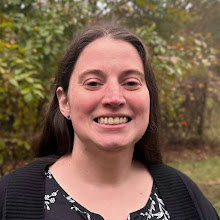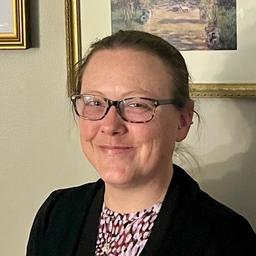5 Top Drug Rehab Therapists in Athens, GA
Athens, Georgia, offers a robust network of outpatient and residential treatment programs for individuals grappling with substance use disorders, mental health conditions, and co-occurring diagnoses.
This guide highlights seven local clinicians and addiction counselors specializing in evidence-based treatment plans, including medication-assisted treatment (MAT), cognitive behavioral therapy (CBT), and holistic approaches to support long-term recovery.
Facilities in Athens and surrounding areas, such as Monroe and Atlanta, provide care ranging from detox and inpatient services to intensive outpatient programs (IOP) and aftercare planning.
1. Dr. Mary Gay
Dr. Mary Gay brings over 25 years of experience as a Licensed Professional Counselor to her role as Program Director of The Summit Wellness Group’s Evening IOP Program.
As a Certified Professional Counselor since 2013, she specializes in addiction treatment through an innovative lens that integrates attachment theory and developmental trauma with cutting-edge neurobiological research.
Her approach focuses on helping clients develop emotional regulation skills through supportive relationships. She addresses core challenges such as managing boredom, loneliness, sadness, and anxiety, especially as they relate to early life experiences.
Drawing from both extensive professional training and personal recovery experience, Dr. Gay offers a uniquely compassionate, respect-centered approach to addiction treatment.
With particular expertise in treating impaired professionals and a deep understanding of developmental trauma’s role in addiction, Dr. Gay maintains active memberships in the American Counseling Association and the Licensed Professional Counselors Association of GA.

2. Kayla Hendricks, LMSW
Kayla Hendricks is a Licensed Master Social Worker (LMSW) specializing in substance abuse and mental health disorders among young adults. She employs a variety of treatment approaches, including cognitive behavioral therapy (CBT) and group therapy, to effectively address issues related to alcohol use, opioid addiction, and drug abuse in outpatient treatment settings.
A key aspect of her practice is the emphasis on family therapy, as she believes engaging loved ones in the recovery process is crucial for positive outcomes. Kayla is affiliated with Counseling Associates for Well-Being, which provides counseling services and referrals to rehabilitation programs in the Athens area.

3. Rebekah Gunter, MSW, LMSW
Rebekah Gunter, MSW, LMSW, is a Licensed Master Social Worker at Oasis Counseling Center. She specializes in integrating mental health and substance abuse treatment. Her Master’s degree in Social Work gives her extensive knowledge of behavioral health practices, allowing her to provide comprehensive and empathetic care to her clients.
Her client-centered treatment approach emphasizes creating a safe, non-judgmental environment where individuals feel empowered to share their experiences. She uses a variety of therapeutic techniques, including cognitive-behavioral therapy (CBT) and psychodrama, aiming to help clients explore their thoughts, emotions, and behaviors related to substance use and mental health challenges.
Rebekah Gunter prioritizes practical feedback in her practice, equipping clients with tools and resources that facilitate positive change. She focuses on building resilience and self-awareness in individuals struggling with substance abuse, fostering strategies that promote long-term recovery and mental wellness.

4. Becky Kim, MS, LPC
Becky Kim’s treatment approach centers on addressing opioid addiction and co-occurring mental health conditions through a combination of cognitive behavioral therapy (CBT) and motivational interviewing techniques.
Becky maintains strong partnerships with rehabilitation centers to ensure smooth transitions for clients moving between inpatient and outpatient treatment programs.
As a practitioner at Small Moves Counseling, she works within a comprehensive treatment facility that offers both Partial Hospitalization Programs (PHP) and Intensive Outpatient Programs (IOP) for substance abuse treatment. The facility makes treatment accessible by accepting both Medicaid and private insurance coverage.

5. Jamie Brown, LCSW
As a Licensed Clinical Social Worker (LCSW), Jamie Brown brings specialized drug addiction and behavioral health expertise to her practice. Jamie’s therapeutic approach is grounded in trauma-informed care, which she delivers through both group therapy and family therapy sessions.
Understanding the complex nature of substance use disorders, Jamie actively advocates for medication-assisted treatment within residential treatment programs for clients with severe substance use disorders.
Jamie practices at Grow Therapy, a comprehensive rehabilitation center near Athens that provides detoxification services and multiple levels of care.
She offers personalized treatment plans to meet client’s unique needs and circumstances.

Best Therapies for Addiction Treatment
Substance use disorders (SUDs) represent a complex public health challenge requiring multifaceted treatment approaches. In Athens, Georgia, the intersection of evidence-based therapies, structured rehabilitation programs, and integrated care for co-occurring mental health conditions forms the cornerstone of effective addiction treatment.
Cognitive-Behavioral Therapy (CBT)
CBT is a standard intervention for addiction treatment, focusing on identifying and modifying maladaptive thought patterns and behaviors linked to substance use.
By teaching patients to recognize triggers (e.g., stressors, environmental cues) and develop coping strategies, CBT reduces relapse rates and improves emotional regulation.
For example, CBT’s emphasis on cognitive restructuring helps individuals replace self-defeating thoughts (e.g., “I need alcohol to cope”) with balanced perspectives (e.g., “I can manage stress through mindfulness”).
Clinical trials demonstrate that CBT, when combined with medication-assisted treatment (MAT), achieves abstinence rates 30–50% higher than standalone pharmacotherapy.
Motivational Interviewing (MI) and Motivational Enhancement Therapy (MET)
Motivational Interviewing (MI) and its structured counterpart, Motivational Enhancement Therapy (MET), prioritize resolving ambivalence about sobriety. By fostering intrinsic motivation through empathetic dialogue, MI/MET helps patients articulate personal reasons for change (e.g., family and career goals).
Studies show MET increases treatment retention by 40% compared to non-directive counseling, particularly in early intervention stages.
Contingency Management (CM)
Contingency Management (CM) employs positive reinforcement, such as voucher-based rewards or privileges, to incentivize sobriety. Clients receive tangible benefits from negative drug screens or attending therapy sessions, which strengthens engagement.
CM programs result in 60–70% abstinence rates during treatment, though long-term efficacy depends on sustained reinforcement.
Dialectical Behavior Therapy (DBT)
Initially designed for borderline personality disorder, Dialectical Behavior Therapy (DBT) has proven effective for addiction patients with emotional dysregulation.
DBT combines mindfulness, distress tolerance, and interpersonal effectiveness skills to reduce impulsive substance use. For instance, DBT’s “chain analysis” technique helps patients deconstruct the sequence of events leading to relapse, fostering accountability.
12-Step Facilitation Therapy
12-step Facilitation groups bridge clinical care with peer support networks like Alcoholics Anonymous (AA) and Narcotics Anonymous (NA). This approach improves long-term recovery outcomes by emphasizing surrender, acceptance, and community engagement.
12-step participation can lead to a 20–30% higher likelihood of sustained sobriety at one year compared to non-participants.
Overview of Rehab Programs for Treating Substance Abuse
Inpatient Programs
Inpatient programs provide 24/7 medical and therapeutic support in a controlled environment, ideal for severe addictions or co-occurring disorders. Typical stays range from 30–90 days, incorporating detoxification, individual/group therapy, and skill-building workshops.
Facilities like The Summit Wellness Group offer medically supervised detox to manage withdrawal risks (e.g., seizures from alcohol and opioid overdose). Inpatient care is often covered by insurance.
Outpatient Rehabilitation
Outpatient programs (OP) offer flexibility for mild-to-moderate SUDs, allowing patients to maintain work/family commitments. Services include:
- Partial Hospitalization Programs (PHP): 6–8 hours/day, 5 days/week, focusing on relapse prevention and coping strategies.
- Intensive Outpatient Programs (IOP): 9–12 hours/week, often in evening sessions, emphasizing peer support and CBT.
IOP in Athens reports a 65% completion rate, with 50% of participants achieving 6-month sobriety.
Medication-Assisted Treatment (MAT)
MAT combines FDA-approved medications such as buprenorphine and naltrexone with behavioral therapy to reduce cravings and withdrawal symptoms.
For opioid use disorder, MAT cuts overdose mortality by 50% and doubles retention in care. Many facilities provide MAT alongside counseling, though stigma and regulatory barriers limit accessibility.
Dual Diagnosis Programs
Dual diagnosis programs treat co-occurring mental health disorders (e.g., depression, PTSD) and SUDs simultaneously. Integrated approaches, such as trauma-informed CBT, address the root causes of addiction (e.g., self-medication for anxiety).
70% of dual-diagnosis patients achieve stable recovery in one year, compared to 40% in non-integrated programs.
Common Co-Occurring Disorders in Athens, GA
Depression and Alcohol Use Disorder
Depression affects 32% of individuals with alcohol use disorder (AUD) in Athens, often perpetuating a cycle of self-medication and worsening mood symptoms. Integrated treatments combining SSRIs (e.g., sertraline) with CBT reduce depressive episodes and drinking days by 45%.
Anxiety Disorders and Opioid Misuse
Anxiety disorders co-occur in 28% of Athens residents with opioid use disorder (OUD). Patients frequently misuse opioids to alleviate panic attacks or social anxiety, complicating detox. Dual diagnosis programs using exposure therapy and MAT report a 50% reduction in anxiety-related hospitalizations.
PTSD and Stimulant Addiction
Post-traumatic stress disorder (PTSD) is prevalent among Athens’ veterans and trauma survivors, with 40% developing stimulant (e.g., methamphetamine) addictions to manage hyperarousal. Trauma-focused therapies like EMDR and DBT reduce PTSD symptoms and stimulant use by 60% in structured programs.
Bipolar Disorder and Polysubstance Abuse
Bipolar disorder’s manic episodes drive impulsive substance use, particularly cocaine and alcohol. Athens clinics stabilize mood with lithium or valproate while teaching emotion-regulation skills, achieving 55% sobriety rates at 6 months.
Effectiveness of Drug Addiction Treatment
Success Rates by Modality
- Inpatient Programs: 60–70% completion rate; 50% abstinence at one year.
- Outpatient Programs: 45–55% completion rate; 30–40% abstinence at one year.
- MAT + CBT: 75% retention; 60% reduced overdose risk.
Factors Influencing Outcomes
- Duration: Programs lasting ≥90 days yield 2x higher success rates than shorter interventions.
- Aftercare: Participation in AA/NA or sober living homes reduces relapse by 35%.
- Dual Diagnosis Care: Integrated treatment improves mental health outcomes by 50% compared to isolated approaches.
Local Data from Athens
- Opioid Treatment: MAT programs in Clarke County report a 40% decline in overdose deaths since 2022.
- Alcohol Rehabilitation: 55% of AUD patients in IOPs maintain sobriety at 6 months versus 30% in standard counseling.
- Co-Occurring Disorders: Dual diagnosis programs achieve 65% recovery stability, attributed to trauma-informed DBT and family therapy.
Reach Out for Addiction Treatment
The Summit Wellness Group is dedicated to helping individuals overcome alcohol addiction and other substance use disorders (SUD) and reclaim their lives.
If you or a loved one is struggling, don’t wait another moment—call our treatment center today at (770) 299-1677. Our recovery center offers comprehensive treatment services tailored to meet your unique needs.
Take the first step toward a healthier future.
